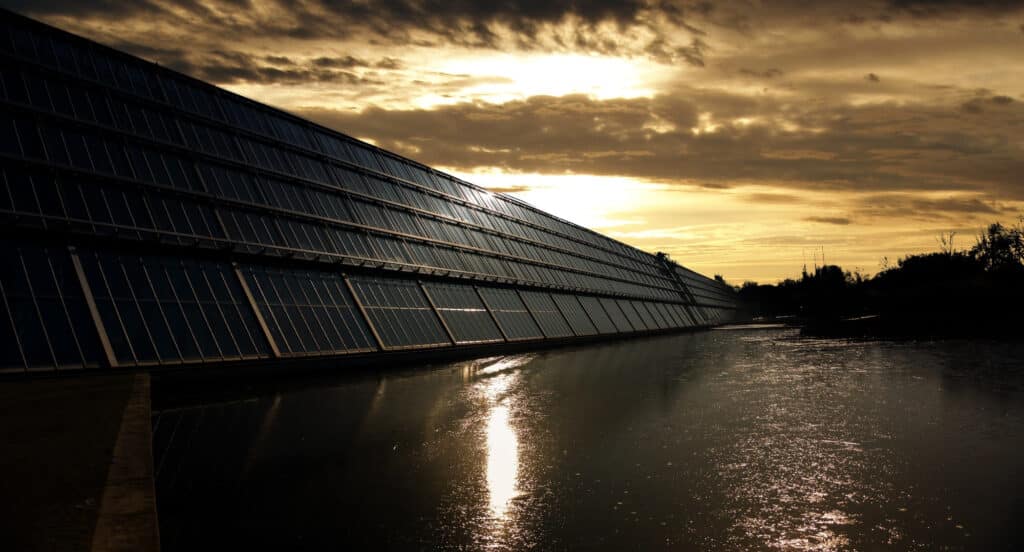What To Look for in a Solar Company
With the relatively large number of solar companies in Iowa and the learning about solar technology, it can be difficult for homeowners to pick a solar company that is perfect for their needs. Below is a short list of factors to consider before choosing a solar provider.
- Cost and financing: Solar panels save money over their lifespan, but their initial cost discourages some buyers. This is why it is important to look for a solar energy company that offers quality products and services at affordable prices. Buyers who can’t afford the upfront cost can also look for installers who offer multiple payment options, such as solar loans, leases or power purchase agreements (PPA).
- Trustworthiness: When installed by a trustworthy solar installer, a solar power system delivers high performance for multiple decades and has a minimum of maintenance issues. A poorly installed system, on the other hand, can have lackluster performance and frequent shutdowns, resulting in higher costs and lower lifetime savings. Check any solar company’s trustworthiness by finding its rating by the Better Business Bureau and ratings and reviews of existing customers.
- Services Offered: Power experts consider solar power an excellent investment, but a home may need several other energy efficiency upgrades. For example, an insulation or HVAC upgrade can help save a home even more on utility bills. Homeowners may also benefit from adding certain accessories, such as a solar battery or an EV charger. Most solar panel companies offer multiple services. When looking for installers, make a list of the likely services you’ll need. This can help you narrow down your search for solar companies.
Top 4 Solar Companies in Iowa of 2023
We at the Guides Home Team have determined that the following providers are the top solar installers in the state of Iowa:
Compare the Cost of Iowa Solar Companies
Based on our detailed survey, the average cost of going solar in Iowa is $3.01 per watt, higher than the national average of $2.85/W. This means a typical 6-kW system can cost Iowans a little over $18,000. Here is a table that outlines the pricing and other details about Iowa’s best solar installers.
*Note: Pricing data is based on responses to our March 2023 solar survey of 1,000 homeowners with 10 kilowatt (kW) solar systems. BBB ratings are accurate as of [month] 2023.
Our Recommendation
Iowans considering a switch to solar power have many solar installers to consider. Among the state’s best companies, SunPower and ADT Solar are sound choices. Homeowners interested in local expertise can opt for GRNE.
Other mentionable solar companies in Iowa include Energy Consultants Group and All Energy Solar. Before signing the purchase agreement, we recommend requesting and analyzing free quotes from three or more solar companies.
Benefits of Going Solar in Iowa
- Electricity bill savings: Iowa families pay about $116 per month on average for electricity consumption. A solar energy system can help lower or even eliminate this expense by offsetting grid energy consumption with solar power. Over the typical lifespan of a system, this can amount to tens of thousands in savings.
- Protection from rising power prices: Iowa’s cold winters and warm summers mean fluctuating electricity rates throughout the year. Moreover, as utility companies build and maintain more generators and transmission lines, they hike the price of power to sustain their finances. As a result, homeowners are left with unpredictable increases in their power bills, which could add up to thousands over the years. By offsetting grid power consumption, solar power helps combat rising power prices. For instance, a family paying a tenth of the average power bill will only have to shell out a tenth of the total price hike in any month or year.
- Positive environmental impact: According to the Iowa Department of Natural Resources, around 20% of the state’s greenhouse gas emissions come from the electricity sector. As more and more homeowners go solar, the reliance on Iowa’s grid power drops, reducing the harmful emissions. This lowers not only the carbon footprint of homeowners but also the state’s contribution to global warming.
- Security from power outages: As the Earth’s climate changes, extreme weather events are becoming increasingly common. Iowa residents have experienced power outages from past weather events. Homeowners who have a backup battery with their solar array can keep the essential appliances in their homes running for multiple days during a blackout.
- Increase in home value: Home buyers are aware of the above-mentioned benefits of solar power, which is why they are willing to pay a higher price for a house with solar. A study by Zillow showed that home prices can rise 4.1% on average after installing solar panels.
Given Iowa’s average home price of $209,313, a 4.1% increase would mean an average increase of $8,581.
Iowa Solar Incentives
Iowa doesn’t have an ambitious renewable portfolio standard, but the existing RPS has certainly helped form some useful incentives and policies. Let us take a look at the available solar incentives in Iowa.
Federal Incentives
Iowans are eligible for the federal solar tax credit, also known as the investment tax credit (ITC). The incentive helps homeowners with solar reduce their income tax by an amount equivalent to 30% of their system’s cost. For example, consider a typical, 6 kW system in Iowa priced at around $18,000. The ITC can help save 30% of this value, which amounts to around $5,400.
Statewide Incentives
The state of Iowa offers the following solar incentives to its residents:
Aniket Bhor is a solar engineer who has spent nearly a decade studying and working in the solar power sector in the European, Asian and North American markets. He is a climate enthusiast and avid cyclist, and he also loves to lose himself in books and cooking.
Tori Addison is an editor who has worked in the digital marketing industry for over five years. Her experience includes communications and marketing work in the nonprofit, governmental and academic sectors. A journalist by trade, she started her career covering politics and news in New York’s Hudson Valley. Her work included coverage of local and state budgets, federal financial regulations and health care legislation.
Read the full article here









